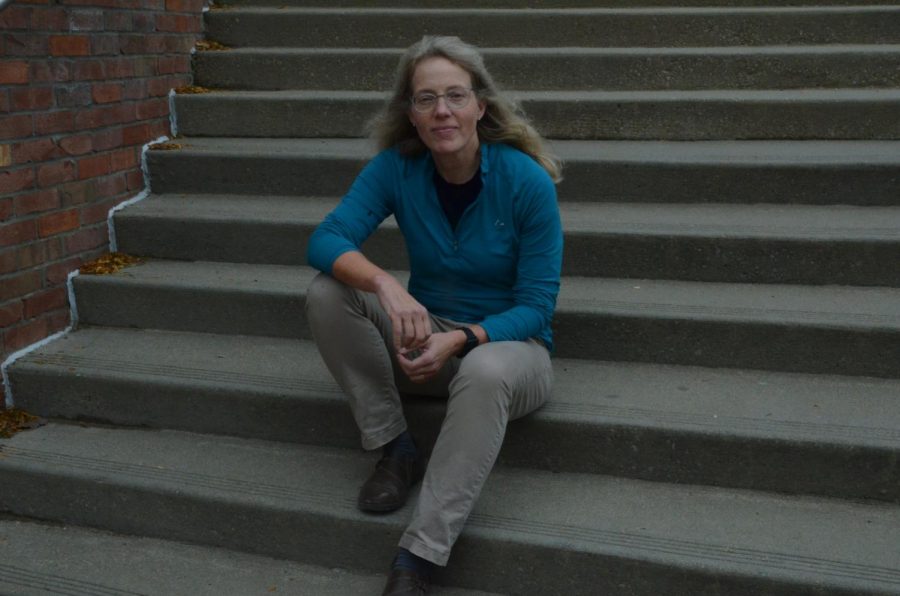Michelle Wikner is a science teacher at West High. She shared her story about coming out in the late 20th century.
Michelle Wikner
When science teacher Michelle Wikner was in highschool she would not have been able to share her story the way some students at West are able to today. At the time she didn’t know the name for what made her feel different than others.
“I didn’t really know what it was, and this would have been 1980s. Society was very different on their views on this at that point in time… I didn’t even really think of it as an option. I didn’t know anybody, there was nobody out in public,” Wikner said.
For years in high school and college she knew she didn’t feel the same way as those around her, but she didn’t know what to call it. Wikner came out to herself as a lesbian when she was 23.
“When I was in graduate school I was in Iowa City. And there were a lot of gay people in Iowa City and I was like ‘Hello, I’m home’,” Wikner said.
The first people Wikner came out to were her close friends. The people in Iowa City who were part of the community were very supportive, but her friends that lived in other places were worried.
“My two closest friends from college they were concerned for a while. And now one of them’s a lesbian too, so I’m like, ‘Boom, I knew it’,” said Wikner.
Coming out was a relief for Wikner because she didn’t have to lie to people anymore, which she described as “emotionally taxing.” At the same time, being public about her identity was scary because she didn’t know the effect it would have on her life and how she would be received as a gay woman.
“In my 20s, I was concerned about my job security. A lot more places now have provisions in place [so that] I don’t have to worry about losing my job, because I’m doing this interview,” said Wikner.
When she was 29, Wikner had to tell her parents, which she had been dreading. However, she was in a relationship with her current wife that she knew was going to last, so she knew it was a necessity.
“We knew that this was going to be a long term thing, so then I knew that I had to come out to my family. And that went as poorly as I anticipated that it would, and that’s why I hadn’t done it before… They just thought it was a phase and it would go away. Here it is 25 years later, and we’re still together, so I’m pretty sure it wasn’t a phase,” Wikner said.
The couple couldn’t stay overnight at Wikner’s parent’s house and they didn’t support them raising children. When they got married in 2009 her mother reluctantly attended the wedding, but her father did not. They have softened slightly through the years but still aren’t completely accepting of the relationship.
“They’re tolerant. We get together for family things, but they’re not supportive at all,” Wikner said.
Though her parents haven’t become more compassionate towards the LBGTQ+ community, Wikner has seen the country slowly moving in that direction.
“In the 1990s I would have never predicted that we would be where we are now so I think it’s really pretty exciting, but obviously, there’s more work to be done,” Wikner said.
To young people in the community, Wikner says, “People just need to be who they are, because it’s too much work to not be who you are. Don’t waste your time being whoever you think society wants you to be, just be you.”

